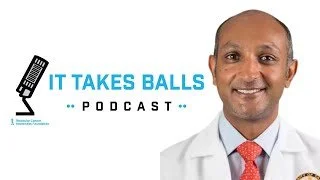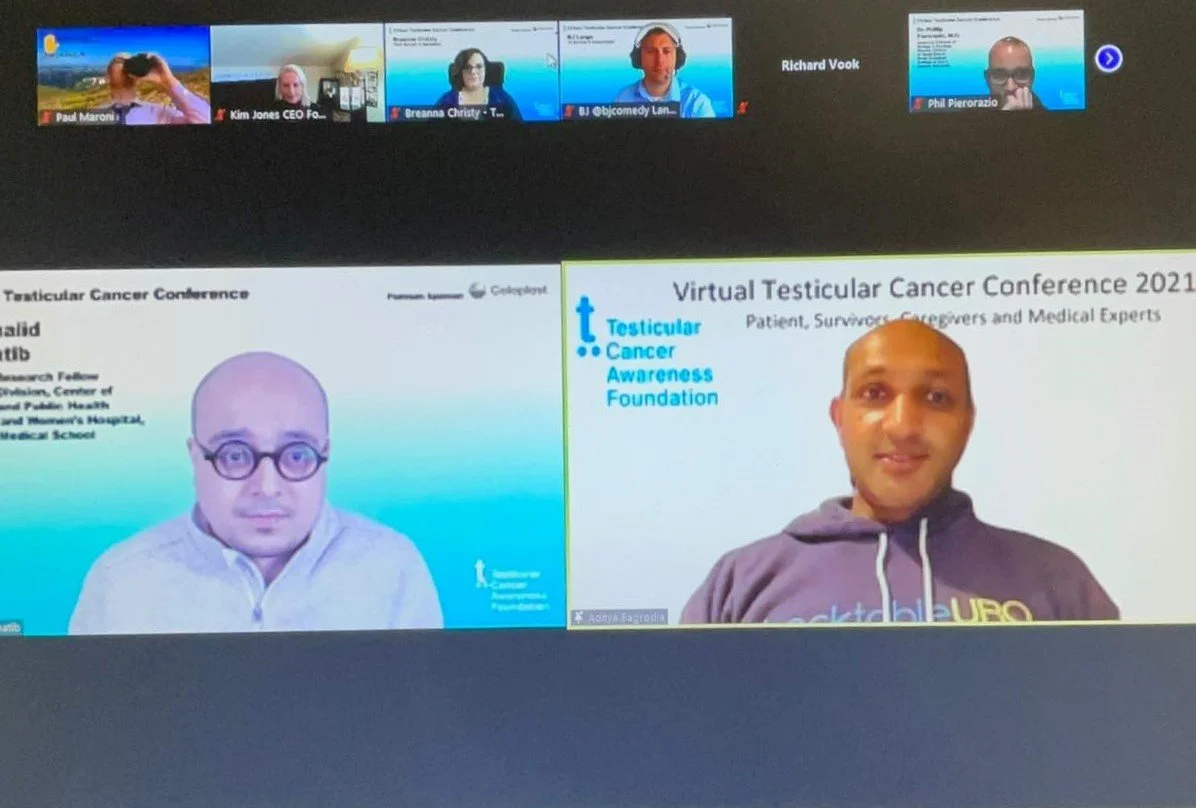Dr. Aditya Bagrodia - Long Term Toxicities of Testicular Cancer
Dr. Aditya Bagrodia - Long Term Toxicities of Testicular Cancer
Welcome to Episode 15 of It Takes Balls
In this episode of It Takes Balls, Dr. Aditya Bagrodia, a board-certified urologist specializing in genitourinary cancers, focuses on the long-term toxicities of testicular cancer treatments, the importance of accurate staging, and advancements in care.
Dr. Bagrodia begins by explaining testicular cancer staging:
Stage I: Confined to the testicle.
Stage II: Spread to retroperitoneal lymph nodes.
Stage III: Spread beyond the retroperitoneal area, often to the lungs, liver, or brain.
He highlights the importance of proper staging to avoid overtreatment, particularly for Stage I patients, and describes treatment options, including surgery, chemotherapy, and radiation, alongside their potential short- and long-term effects.
Key Toxicities Discussed:
Hormonal Changes: Removal of a testicle can lead to low testosterone, causing fatigue, reduced libido, depression, and potential long-term effects like osteoporosis and metabolic issues.
Chemotherapy and Radiation: Both treatments carry risks of secondary cancers, heart disease, neuropathy, hearing loss, and fertility issues. Cisplatin-based chemotherapy, in particular, can cause vascular and nerve damage.
Fertility Concerns: Approximately 90% of patients can conceive after treatment, though fertility assessments and sperm banking are recommended before surgery.
Emotional Impacts: Many survivors experience fear of recurrence and other psychosocial challenges, emphasizing the importance of support groups and mental health resources.
Mitigation Strategies:
Dr. Bagrodia encourages a proactive approach, including:
Regular monitoring for cardiovascular and metabolic health.
Diet and exercise tailored to improve recovery and overall health.
Consulting with specialists such as endocrinologists, audiologists, or physical therapists as needed.
Future Innovations:
Dr. Bagrodia discusses the promising role of microRNA blood tests for improving diagnostic precision and tailoring treatments, potentially reducing unnecessary interventions and toxicities.
Advice for Survivors:
Dr. Bagrodia stresses the importance of seeking care at high-volume cancer centers to ensure comprehensive treatment and follow-up. He also advocates for a multidisciplinary approach involving oncologists, primary care physicians, and survivorship specialists to address long-term health needs.
Want to be a guest? Click here to apply.
Follow Testicular Cancer Awareness Foundation:
Follow Dr. Bagrodia:
https://twitter.com/AdityaBagrodia
Thumbnail photo credit: UC San Diego Health



